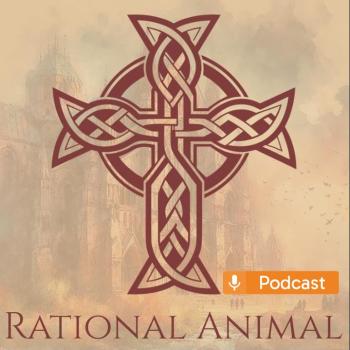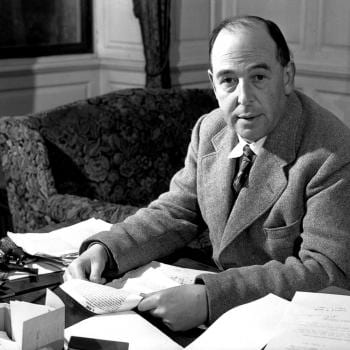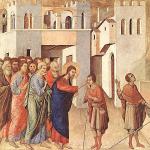Locker-room Talk
I remember in junior high school, locker-room talk was quite commonplace. When talking about girls in our class, sometimes I would get ridiculed for hesitating to participate in such sexually degrading talk. I would be lying if I said I was innocent of partaking in such vulgarity, but I was often teased and told I was gay for not sharing in the raunchy humor with my peers. I would sometimes join the conversation unwillingly to avoid being ridiculed in front of my classmates as an easy way out. It’s difficult to be in an environment where people shame others to justify the objectification of women. I’ve also learned the hard way as I grew older as far as boundaries, personal choices as well as how to talk respectfully. I truly regret partaking in such demeaning talk and making others feel uncomfortable due to my own cowardice.
As I had written in a previous article, women are right to be angry with men. It’s fair to say that conflict goes both ways, especially in a romantic relationship; but there’s no denying women have been subject to constant objectification, harassment, belittling and exploitation from unruly men throughout history. The feminist movement is truly the result of our shortcomings as men, and we have certainly reaped what we’ve sown.
Feminism at its origin has been about viewing women as equally human as men. But this has seemingly been at odds with religious ideologies historically. The disagreements among them largely seem to revolve around the right to life for the unborn. It is worth noting that the first-wave feminists were staunchly pro-life. Nowadays there is such diverse schools of thought among modern feminists — much like the thousands of Christian denominations.
Misogyny and Anti-Catholicism
As a newly-converted evangelical Christian in my early 20’s, I attended an interdenominational Bible school. One of the more controversial topics discussed in theology class was whether or not God is a sexed entity. Questions arose such as, ‘Does God have both male and female characteristics? Why do we call God our Father? Why couldn’t He just be a Goddess?‘ often got our class really thinking. But when it came time to discuss the role of the Virgin Mary, a sizable portion of the class automatically displayed rampant hostility. Some of them would go off on a tirade about how Catholics are going to Hell for giving her even the slightest reverence, which somehow seemed to evolve into a debate over the role of women in the church. I was quite taken aback when I noticed a parallel between misogyny and anti-Catholicism.
It would be naive of me to believe that Catholics are completely innocent of misogyny, and I would be ignorant to brush off the abuses that have happened in the past. Many would argue that the Church has a dismal record of the mistreatment of women, and that the Bible is riddled with instances of anti-woman abuse. Why did Lot offer his daughters to be gang-raped in the Old Testament? What problem was the apostle Paul addressing when he told women to cover their heads and remain silent? Why don’t some denominations allow women to become priests or elders? Each of these are extensive topics meant to be separate articles of their own, and I won’t be able to expand on them in a single article. But what it comes down to are two things:
- The cultural and historical context of every book in the Bible.
- What the Church teaches versus the actions of individuals are two different things.
Too often, when we view the Bible in a 21st century American context (or even a 16th century European context at that), these particular passages will sound even more outrageous than they already seem. Passages such as,
Jesus and his disciples were also invited to the wedding. When the wine ran short, the mother of Jesus said to him, “They have no wine.” [And] Jesus said to her, “Woman, how does your concern affect me? My hour has not yet come.” — John 2:2-4 NAB
Was Jesus slamming Mary by calling her ‘woman’ rather than ‘mother’? If God told us to honor our father and mother, then this would be an extremely poor example displayed on Jesus’ part if taken literally. If the Bible is not understood from a historical Jewish perspective, it’s interpretation becomes subjective and people have a tendency to make assumptions of what a passage is actually saying. They may even resort to picking and choosing what parts are most convenient for them, or disregarding them altogether – hence where the selfish actions of individuals enter. It is an unfair charge to say that the actions of a few determine the values and beliefs of the group it belongs to as a whole.
Moral Tunnel-Vision
And speaking of association fallacies, it is important to understand that not all feminists share the same views. For some religious individuals, feminism can seem like such a dirty word. This is largely due to the fact that many often associate feminism with the freely unapologetic acceptance of abortion. Any action involving the termination of another human life, especially one that cannot defend itself, is non-negotiable to the devout Christian. But given this, it’s easy for many pro-life advocates to overlook both sides of the issue – and the same could be said for the pro-choice advocates. While some feminists tend to emphasize that policing a woman’s body is an infringement on her human rights, it is easy to forget that these rights can often be at the expense of the lives of the unborn, whether or not the intentions are good. But this isn’t to say that all feminists are baby-killing monsters; because most first-wave feminists of the 20th century were strongly anti-abortion from the beginning. It’s easy for both sides to have tunnel-vision. But as progressive Christian writer J.R. Daniel Kirk quotes,
“You cannot claim Christ while excluding someone from the circle of your moral responsibility!”
Similarly, a person can’t claim to be pro-life and continue to be ignorant of rape-culture, lack of access to adoption, child poverty, homelessness, humanitarian crisis, the list goes on.
Feminism and the Catholic Church
Another topic that remains to be a sore spot between the feminist movement and the Catholic Church is the ideological use of contraception. The Christian religion as a whole has historically been opposed to its usage up until the Anglican Church first declared it to be acceptable in the 1930’s. Nowadays, Catholicism remains to be one of the only Christian denominations that opposes contraception to this day. Some would argue that these rules against contraception is a method of ‘crowd control’ or a way to increase a more religious population. But in reality, it’s not about controlling people at all. The Catholic view is the use of contraception actually dulls down the meaning of sex to strictly for pleasure. Thus, it encourages both engaging parties to treat each other as objects of gratification. One of the ongoing issues the feminist movement protests against is how men continually abuse women as sexual objects. The connection between the sexual objectification of women and the use of contraception was actually clarified by Pope Paul VI,
“Another effect that gives cause for alarm is that a man who grows accustomed to the use of contraceptive methods may forget the reverence due to a woman, and, disregarding her physical and emotional equilibrium, reduce her to being a mere instrument for the satisfaction of his own desires, no longer considering her as his partner whom he should surround with care and affection.” — Humanae Vitae, 17
The Catholic view of sexuality isn’t policing a woman’s body, but a warning of how our choices affect women negatively. We have free will, so, in a sense, we are all ‘pro-choice’ to an extent. But this does not mean we are safe from the consequences of following our desires. And it’s not that Catholic Christians are anti-sex. In fact, they consider sex to be a divine gift. They refrain from contraception as a preventative measure from abusing sex as a pleasurable entitlement. Sex can be addictive like alcohol, but can be fully appreciated when a person can master their desires.
But to be fair, sometimes the use of contraception is necessary as a protective measure. For example, in light of last year’s Zika virus outbreak, Pope Francis addressed the public that contraception would be considered a ‘lesser evil’ in this scenario. This comes to show that, despite our knowledge of moral absolutes, sometimes we are faced with some hard choices and not everything is as black-and-white as we would like it to be.
Feminism and the Bible
I’ve heard some people jokingly say Eve was responsible for the fall of man in Genesis. Humorously or not, this is a blight on our representation of Jesus that we, as Christians, can neither brush off nor deny. It stems from bad theology. It is also worth noting Adam was present and did nothing to intervene when the serpent tempted Eve to eat the forbidden fruit. Adam was also quick to shift the blame to Eve when God questioned him why they chose to eat it; and there is a strong parallel between this observation in Scripture and victim-blaming in cases of sexual assault.
While Adam and Eve both fell into temptation, Mary’s consent to bear the Son of God is what lifted the curse of Original Sin. Mary could have said, ‘No!’ to the archangel Gabriel when he first revealed the news to her. Mary could have sought out an abortion in light of the possibility of being slut-shamed. But instead, she complied,
“Behold, I am the handmaid of the Lord. May it be done to me according to your word.” – Luke 1:38 NAB
I have to admit I used to believe reverence towards her was a form of idolatry in my Protestant days. It took me years to wrap my mind around why those crazy Catholics believe giving her honor is deeply scriptural. If God is as glorious as we are told, He could come down from Heaven and proclaim, “Here I am! Worship me!”? To me, that sounds like a god of narcissism. The idea that He chose to be born of a woman and entrusted His life in her hands speaks volumes of His humility. It is also worth noting that when Jesus rose from the dead, the first to witness His glorious Resurrection was none other than Mary Magdalene – a woman! Why would God reveal Himself to a woman first after his Resurrection rather than one of His male disciples? It’s a mystery I do not have the answer to, but I find it to be a very compelling observation.
Feminism and Church History
Historical tradition among Catholic and Orthodox churches also suggests that Mary remained a virgin all her life. Even the early Protestant reformers Martin Luther, John Wesley and John Calvin actually held to the belief in the Perpetual Virginity of Mary. It is difficult to fathom an entire lifetime of chastity — especially when she was already betrothed to a man. But who are we to decide what Mary’s sex-life was like? There is enough virgin-shaming in our society as it is. Who are we to say she didn’t make her own choice to remain a Virgin after giving birth to Christ?
Many people would also point out in the Bible that Jesus had brothers, but this is where I see an inconsistency in a literal English interpretation. In Jewish tradition, usually surviving relatives would be responsible for caring for their widowed mothers. Why wasn’t James (the supposed brother of Jesus) at the foot of the cross with Mary in John 19:26? Did Jesus deliberately disregard tradition just so John could be the one to care for her? Perhaps James was a cousin or a son of Joseph through a previous marriage? This is only an observation, but it seems many of these beautiful doctrines about Mary were rejected in the wake of spiteful hostility during the Reformation – like a phrase twisted after a centuries-long game of telephone. This doesn’t mean Protestants have no respect towards her. But it’s interesting to witness the inconsistency in agreement regarding Mary’s role as Virgin and Mother. To this day, Catholics, Anglicans, Lutherans and Eastern Orthodox share a common historical devotion to honoring the Virgin Mary.
Equal or Greater?
William Golding, author of Lord of the Flies, once quoted,
“I think women are foolish to pretend they are equal to men, they are far superior and always have been.”
While I think the above quote may be a bit hyperbolic, I think it accurately describes the power of influence women truly withhold that men cannot compare to. As a former evangelical, I feel the need to say it is important to understand that Mary’s status as the Mother of God does not make her equal to or above God (Matt. 10:37). The creation is not superior to the Creator. Some would argue she is strictly the mother of Jesus. But if Jesus is truly God such a statement alludes to a separation of His divinity from His humanity. This is known as Nestorianism, an ideology that was rejected as heresy by the early Church in the Council of Ephesus (431 A.D). Many Christians criticize Catholics for worshiping Mary like a goddess, but it’s important to understand the difference between giving all glory to a divine being and giving special honour to a creation. Mary’s role is to lead us to Christ. Just as she said to the wedding guests at Cana,
“Do whatever He tells you!” – John 2:5 NAB
It is completely understandable for the Catholic view of Mary’s role to be a very difficult concept to grasp. Our modern culture is so far-removed from first-century Palestine. Believing something difficult to decipher literally from Scripture is not something any Bible-believing Christian would easily embrace. But it’s arguable how we as Christians view Mary can be a reflection of how we view women in general. This does not mean they have to embrace Catholic teachings in order to respect women. But if Mary were only a mere pawn in God’s infinite plan, this reduces her to an object of disposal. How does that affect our view of every other female figure in the Bible, let alone women in modern times?
Honor Women, Honor God
So what do feminism and Christianity share in common in this philosophical minefield? From my perspective, how we view women determines how we treat them. The basic principle of the feminist movement is for men to view them as equally human, not objects of gratification. The way Christians view biblical female figures truly affects their theology of how they ought to be treated; and one of the major factors is how we view Mary as the Mother of Christ. If the Ten Commandments tell us to honor our father and mother, why shouldn’t we honor His own Mother? While Eve was formed from Adam’s rib, God chose to be incarnated in Mary’s womb — a most humble inversion. This is why Catholics view Jesus as the New Adam (1 Cor. 15:45) and Mary as the New Eve.
The first Christian and greatest saint who ever lived was, in fact, a woman!
Respecting women to be equally human is really not much to ask for. It doesn’t make anyone less of a man, but more Christlike in character. From my perspective, it’s about humbling ourselves to the ones who gave birth to us and bear our children. It’s a recognition for women to be equally human as men, having the capacity to make their own decisions, having abilities that men do not retain and not to be viewed as mere objects of pleasure at our disposal. It is an utmost respect for all life from conception to seniorhood, and a willingness to put the livelihood of the vulnerable first ahead of our selfish desires.
Can Feminism and Christianity Find Common Ground?
Before I conclude, I am most frustrated with is the us-versus-them mentality rampant in both feminist and religious groups. If both sides truly value all aspects of life, what’s stopping from working together to create a more pro-life environment? What’s stopping them from standing together to speak out against locker-room talk, gender-based discrimination, objectification, sexual harassment, rape, human trafficking and abortion? Whether or not my friends agree with my stance on abortion, I’m willing to acknowledge that we need to change the culture we live in so it is more supportive for the well-being of women and children who are vulnerable. It is especially our duty as men to make this happen.
Exploring feminism has led me to love Mary as the blessed Mother of our Lord she is. It also helped me to better love Jesus and led me to embrace the Catholic faith. It helped me to better love my wife, my daughter, my mother and all the women in my life.
Because when we honor women, we honor God.
















